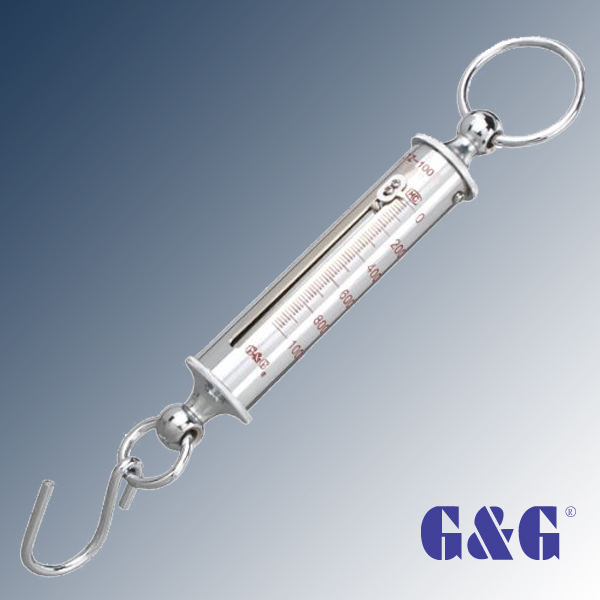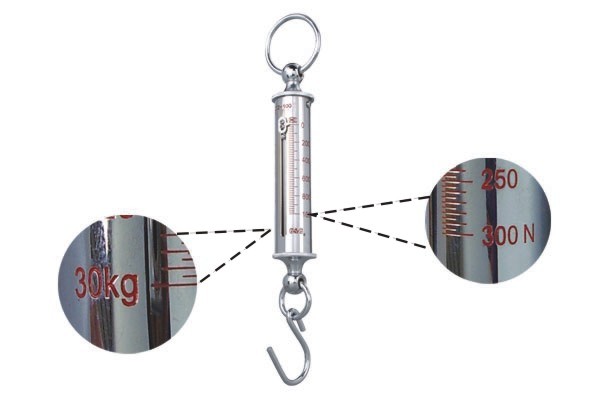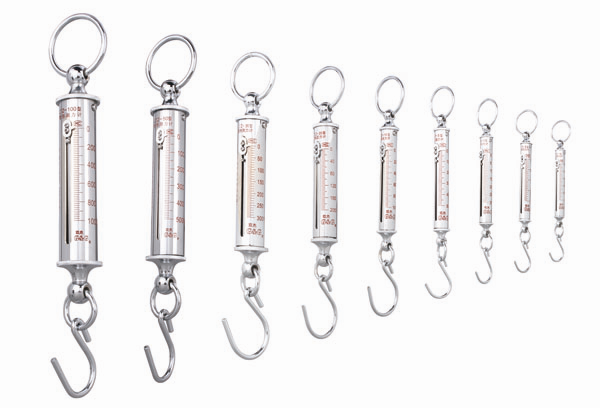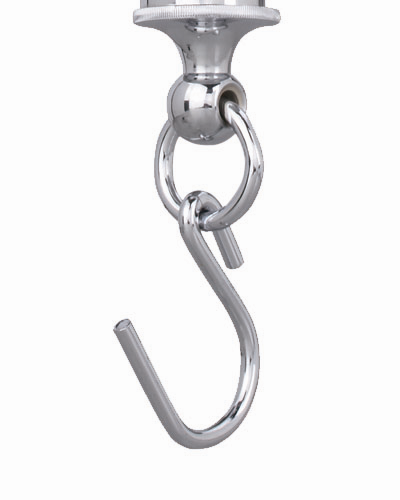|
|
 |
Scope of delivery:
- 1 x LTZ spring scale in the chosen version
|
|
|
|
Capacity: 10N - 1000N (1kg - 100kg)
Simplicity and local independence make spring scales a popular and often used measuring instrument.

A spring scale shows the force value (extension) on the scale in N (Newton) on the left and in kg on the right site.
Both scales and the lettering are milled into the afterwards fully chrome plated metal housing and additionally painted red.
Adjustable zero point adjustment, hanging ring, load hook and extremely stable design ensure a long service life.

Accuracy class / tolerance:
The tolerance of the scales is + -2% Qmax (the maximum capacity).

|
| Model - capacity in kg |
Diameter
(mm) |
Length
(mm) |
Capacity
(N) |
Scale-steps |
Own weight(kg) |
| LTZ-100 |
50 |
455 |
1000 N |
2kg/20 N |
2,4 |
| LTZ-50 |
50 |
455 |
500 N |
1kg/10 N |
2,4 |
| LTZ-30 |
38 |
340 |
300 N |
500g/10 N |
0,92 |
| LTZ-20 |
32 |
340 |
200 N |
400g/4 N |
0,7 |
| LTZ-10 |
25 |
340 |
100 N |
200g/2 N |
0,48 |
| LTZ-5 |
22 |
280 |
50 N |
100g/1 N |
0,28 |
| LTZ-3 |
22 |
280 |
30 N |
50g/0,5 N |
0,28 |
| LTZ-2 |
22 |
280 |
20 N |
40g/0,4 N |
0,28 |
| LTZ-1 |
22 |
280 |
10 N |
20g/0,2 N |
0,28 |
Product safety information
Manufacturer information:
G&G GmbH
Novesiastr. 31
Kaarst, Deutschland / Germany, 41564
info@GandG.de
GandG.de
| Shipping weight: |
0,40 kg
|
| Item weight: |
0,28 kg
|